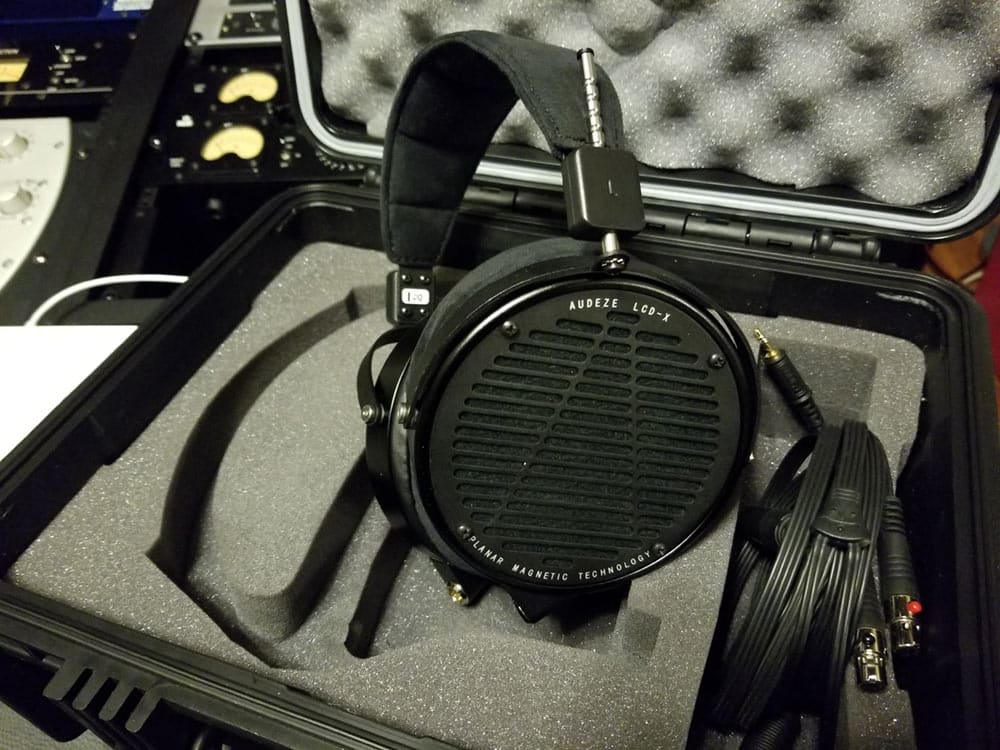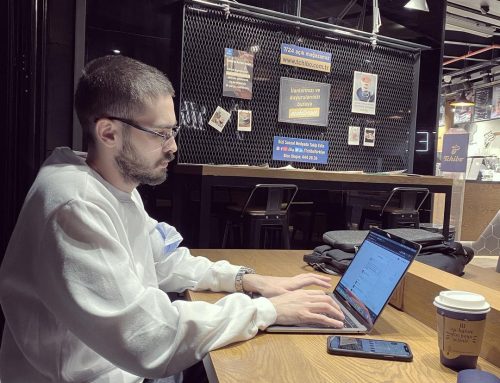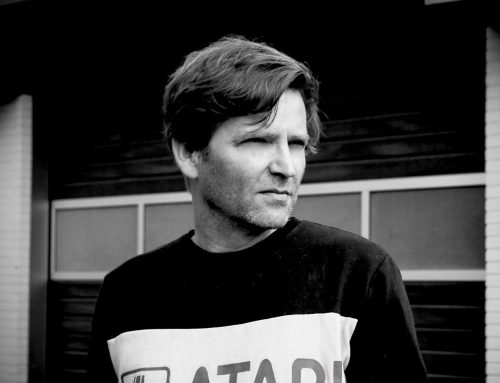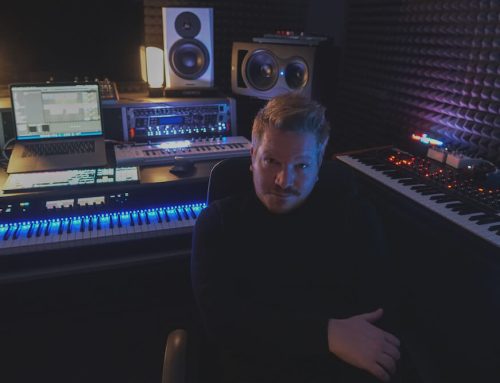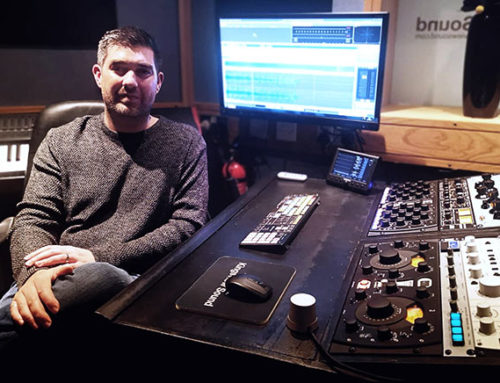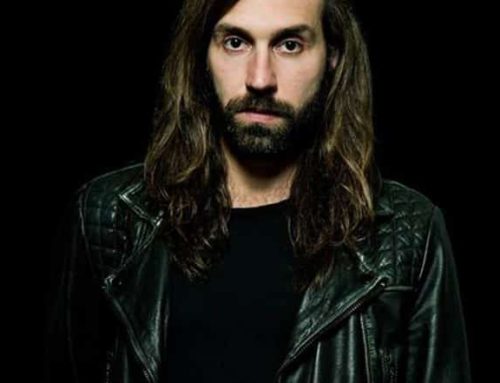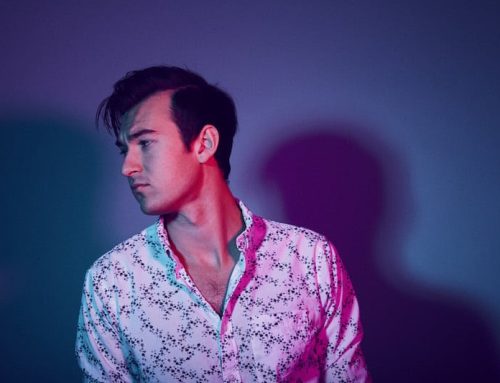Adam Chamberlain is an audio engineer based in Oklahoma City, Oklahoma. He is the Video Production Audio Engineer at Life.Church, a multi-site organization with nearly 30 locations in states across the US and attendance averaging near 100,000 people per weekend. He also works from his home studio, primarily focusing on mastering. He started his musical journey as a drummer, playing in a few bands and doing regional shows in the Midwestern part of the US. Over time, he transitioned into the world of audio engineering and has been working in the field for roughly 10 years.
Hey Adam, thanks for taking the time to chat with us!
What’s your process for setting up a mixing session, and does it differ from genre to genre?
Once I have all the tracks in the session and I’m sure they’re all synced up, I’ll begin with getting a “fader mix” which is really just setting level and pan to get a general mix balance. If there are any really obvious needs in terms of EQ or compression on any tracks, I’ll go ahead and get those problems addressed. At that point, I’ll probably set up some groups for things like drums, bass, guitars, keys, vocals, etc. Depending on the vibe of the tracks, how they were recorded and what the desired end result of the mix is, if I’m looking for a sound with lots of character, I’ll probably put some console and tape emulation on all the buses. I’m looking for whatever compliments the character of the tracks in that group and feels like the vibe I want for the mix. If I’m looking for a super clean mix (maybe hip-hop, pop or EDM), I’ll leave the tracks/groups alone. Then the final step before diving into details of the mix is to set up some master bus processing. For a cleaner mix, I’ll usually choose only a compressor – most likely VCA style. For more character, I’ll consider some harmonic flavors, maybe an EQ and then the bus compression. Then it’s game on!
What did you do for work while you were establishing yourself as an audio engineer?
For many years, I worked a part-time job as a barista and would take various musical gigs on the side (drummer, DJ, FOH sound, recording, mixing). Eventually, it became more expensive for me to keep working the coffee shop job and not be available for the music work I was getting.
What is your favorite compressor plugin and why?
What I would consider my desert island plug-in is the FabFilter Pro-MB. It’s considered a multi-band compressor, but it has a huge array of functionality. The diversity of that plug-in is nuts. If I tried to list off all the features it has that I use, it’d take a quite a while. So instead, I’ll just say that, like all FabFilter products, it’s easy to pull it up and get something simple going right away. But if you want, you can dive in very deep and do a ton of stuff with it.
Your DAW and why that choice specifically?
I’ve used ProTools since about 2006. I’ve owned and used many other DAWs, but that’s the one I learned on and have become super fast with. I don’t know about all the options that are out there, but ProTools fits my workflow nicely. I mostly do editing, mixing and mastering, so I don’t need something that’s oriented towards production and creation.
What’s your favorite kind of artist to work with?
There are a few things that make me enjoy working with an artist or client. In general, it’s great when they know what they’re looking for and can articulate it at least a little bit, then allow me to do what I do to get a great result we’re both pleased with. On the opposite side, one of the most difficult things to deal with is when the client has commitment issues. In today’s world of nearly infinite possibilities and options, you still have to commit to something and go with it.
Advice/recommendations for anyone thinking to get into the music industry as an audio engineer?
When you’re just starting out or still relatively new at this, don’t expect to be getting really great results every time. Sometimes, that comes easy, and sometimes it’s super difficult to get there. Be willing to put in the same kind of time and practice that anyone else who’s successful has. I’d recommend starting off by taking any work you can get, either doing your own production and mixing or finding an artist or band that might be in a similar position to you: just getting their craft going. It’s a mutually beneficial situation if you can both gain experience without the pressure of money and high expectations. As you get better and people start coming to you rather than you seeking everyone, you can start making some money at it.
What are your thoughts on mixing fully in the box?
For mixing, it’s the only way I work these days! I’m totally a believer in analog gear and have several higher-end pieces of my own (which I only use in mastering and the occasional 1 or 2 channel recording scenario). The convenience and quality that many plug-ins offer is so appealing and valuable. And there’s certainly lots of stuff plug-ins can do that hardware can’t. To me, the main trade-off is the time, effort and money it takes to get a really great chain for a full mix. If you have the clientele, time, budget and skill for analog/hybrid mixing, I say go for it. I feel it can give you certain sonic benefits that might allow you to get to the finish line faster, depending on your particular setup, needs, and workflow. But all in all, with good tools and intentional decision making, a fully ITB mix can be amazing! Let’s just put it this way: people don’t win a Grammy based on what gear they used on the mix.
Do you use plugins for mastering as well as the outboard gear?
Yes! I use hardware for general shaping, depth and color, then use plug-ins for any corrective or refining work and final limiting. My current analog setup is 2 compressors and 2 EQs: an SPL Passeq for a big, passive, clean tone shaping tool, a Charter Oak SCL-1 for very transparent compression, an IGS Tubecore 3U for a more gooey, tube compression and a Manley Pultec, for broad and colorful tone balancing.
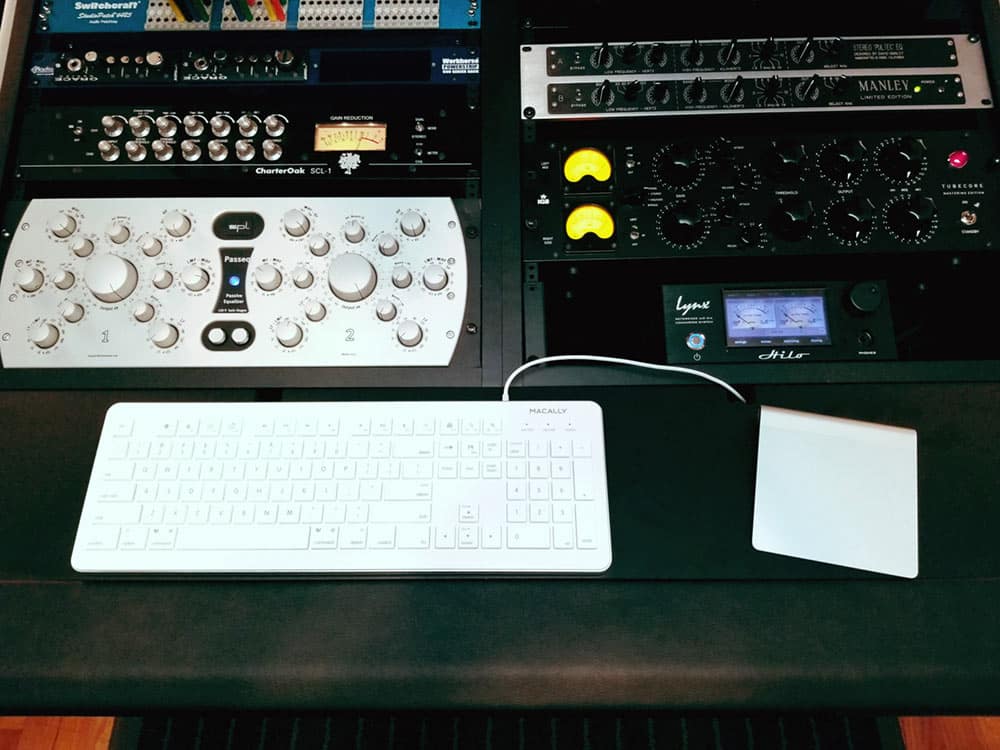
When it comes to mastering what do you think is the most important thing to achieve?
There are lots of goals I have when mastering, but I think the most important one is to enhance the mix, not just make it louder. Making a mix louder is incredibly easy to do but rarely is that enough. When I’m mastering, 90% of the time, I’m listening to the mix and comparing my master totally level matched, so that neither feels louder than the other. This allows me to be sure that what I’m doing is actually helping the mix sound better and not just louder.
Which factor is more important in audio mixing/mastering? Experience or Equipment? Why?
Experience trumps equipment almost every time. I’ve heard some amazing mixes from people that were using a completely ITB setup, and I’ve heard some less than stellar mixes from people with some of the best gear money can buy. Nearly every studio situation we might find ourselves working in will have some kind of limitations. Those with experience know their craft well enough to work in spite of those limitations and still get the best results possible. Those without experience will be stumped and left behind.
What is the most important piece of equipment in your studio, who was it made by, why is it so important?
My Lynx Hilo. It’s the hub of my whole setup. It connects and routes my computer and DAW to my gear, headphones, monitors and has a really great conversion that I can trust.
Do you use referencing headphones, who made them, and why that choice for you?
Audeze LCD-X headphones. They’re open back, mastering grade headphones with a very detailed, open and neutral sound. They’re amazing for critical listening and I always trust what I’m hearing through them. They’re easy to take with me too, so I can always have a reliable reference for monitoring, no matter where I’m working.
